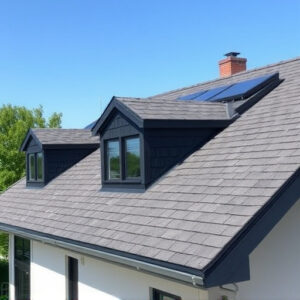Advanced energy-efficient roofing options offer durability, environmental benefits, and long-term cost savings. Asphalt shingles and metal roofs provide enhanced insulation, reflectivity, and longevity. Proper installation and maintenance maximize their efficiency. Incentives and case studies highlight their economic viability. Future trends include advanced thermal insulation and solar technology integration for sustainable buildings.
“Discover the future of roofing with long-lasting, energy-efficient shingles. This comprehensive guide explores cutting-edge technology enhancing home insulation and reducing utility bills. From environmental benefits to diverse material types, we uncover how eco-friendly roofing solutions offer sustainable, cost-effective options. Learn about installation best practices, explore regional incentives, and gain insights from real-world case studies. Uncover why energy-efficient shingles are not just a trend but a game-changer in home improvement.”
- Understanding Energy-Efficient Shingle Technology
- Benefits of Eco-Friendly Roofing Materials
- Types of Long-Lasting, Energy-Saving Shingles
- Installation Tips for Optimal Efficiency
- Cost Analysis: Energy-Efficient vs Traditional Shingles
- Environmental Impact of Green Roofing Solutions
- Maintenance and Durability Considerations
- Regional Regulations and Rebates for Eco-Roofs
- Case Studies: Successful Energy-Efficient Roofs
- Future Trends in Sustainable Roofing Materials
Understanding Energy-Efficient Shingle Technology
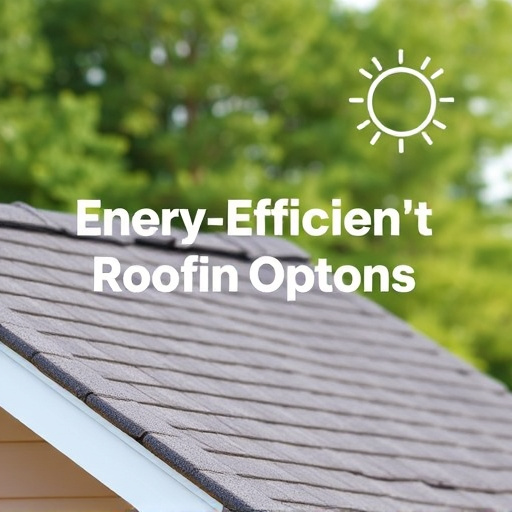
The advancements in roofing technology have led to the development of long-lasting, energy-efficient shingles that significantly contribute to sustainable roofing practices. These innovative products are designed to offer superior performance and environmental benefits, making them a top choice for eco-friendly roofing options for homes. By incorporating special materials and advanced manufacturing processes, energy-efficient shingles not only reduce heat absorption but also provide excellent resistance to weather conditions, ensuring the structural integrity of your home over time.
One key aspect that sets these shingles apart is their ability to reflect sunlight and insulate roofs effectively. This feature helps in reducing the amount of heat transferred into the building, thereby decreasing cooling costs. In addition, many energy-efficient roofing options come with enhanced durability features, such as superior wind resistance and protection against environmental damage. Long-term cost savings on energy bills through roofing are also a significant advantage, making these shingles a smart investment for homeowners looking to reduce their carbon footprint while enjoying consistent comfort inside their homes.
Benefits of Eco-Friendly Roofing Materials
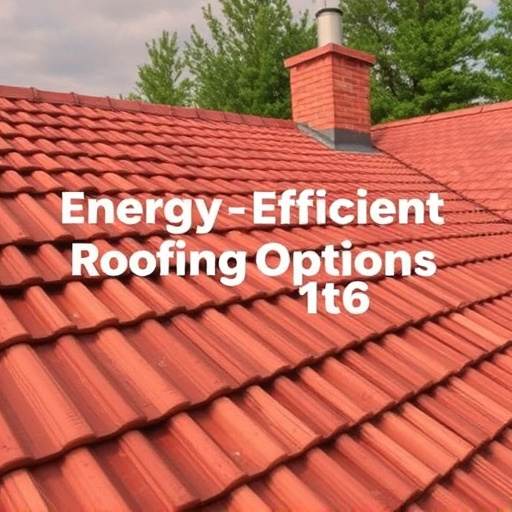
The choice of roofing materials plays a significant role in determining the environmental impact and long-term savings of your home. Eco-friendly roofing options, such as energy-efficient shingles, offer numerous benefits that go beyond aesthetics. These materials are designed to be durable and low-maintenance, reducing the need for frequent replacements and the associated waste. By opting for energy-efficient roofing, homeowners can enjoy lower utility bills due to improved insulation properties that keep homes cooler in summer and warmer in winter.
Additionally, these green roofing solutions contribute to sustainable practices by minimizing water runoff and providing habitats for local wildlife. Ventilated roofing systems, a key component of many eco-friendly roofs, enhance air circulation, reducing the load on HVAC systems. This not only extends the lifespan of the roof but also creates a healthier indoor environment. With the growing demand for sustainable living, choosing low-maintenance eco-friendly roofs is a smart decision that benefits both your wallet and the planet in the long run.
Types of Long-Lasting, Energy-Saving Shingles
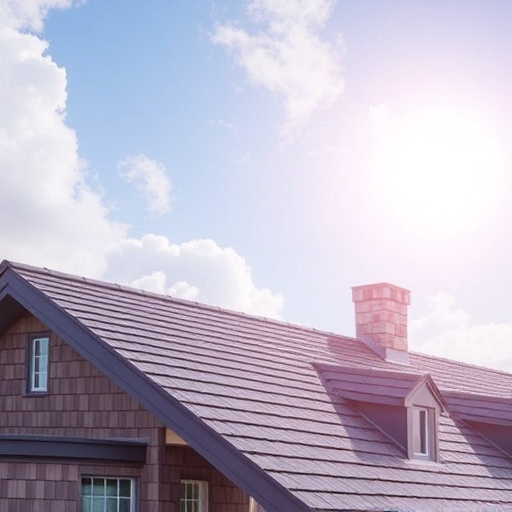
When it comes to choosing long-lasting energy-efficient shingles, there are several options available that offer both environmental and economic benefits. One prominent type is the asphalt shingle, which has been significantly enhanced with advanced manufacturing techniques and materials. These modern asphalt shingles boast improved durability, reflectivity, and insulation properties, making them a popular choice for homeowners seeking to reduce their carbon footprint.
Another notable category is metal roofing, renowned for its exceptional longevity and energy efficiency. Metal shingles and panels are lightweight yet robust, capable of withstanding extreme weather conditions while reflecting heat, which helps keep homes cooler. As the demand for sustainable roofing practices grows, manufacturers have introduced innovative designs that mimic the look of traditional shingles, providing both aesthetic appeal and reduced energy consumption—a true double win for environmentally conscious homeowners. Additionally, these metal options can be easily recycled, further contributing to overall sustainability efforts in the roofing industry.
Installation Tips for Optimal Efficiency
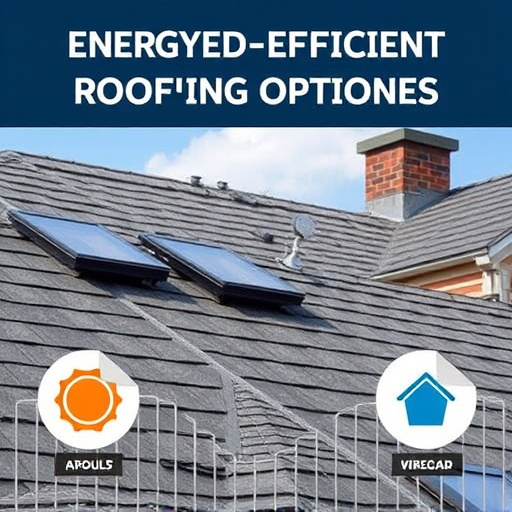
When considering long-lasting and energy-efficient shingles, proper installation is key to achieving optimal performance. Start by ensuring a clean, dry roof deck before installing any new shingles. This includes removing debris, repairing or replacing damaged shingles, and checking for adequate underlayment. Proper flashing installation around chimneys, vents, and other penetrations is also crucial, as these areas are vulnerable to leaks and energy loss.
For maximum efficiency, opt for solar reflective roofing options which can help reduce roof temperatures, thereby lowering cooling costs. Eco-friendly roofing options for homes, particularly low-slope energy-saving roofs, offer excellent durability and insulation properties. Ensure your installation adheres to manufacturer guidelines and local building codes. Use the right tools, follow recommended fastening patterns, and consider using a hip or ridge vent system to enhance airflow, further contributing to your home’s overall energy efficiency.
Cost Analysis: Energy-Efficient vs Traditional Shingles
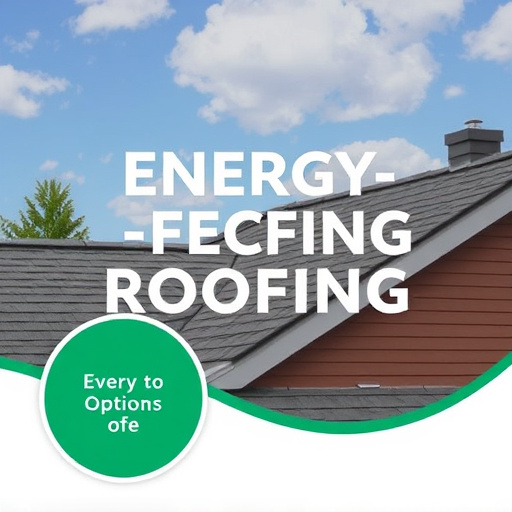
When considering long-lasting energy-efficient shingles, a key factor to evaluate is the cost analysis compared to traditional options. While initial installation costs for energy-efficient roofing solutions might be higher, they offer significant long-term savings. These shingles are designed with advanced materials that enhance energy performance, reducing heating and cooling loads on buildings. This translates to lower utility bills over time, making them a more sustainable investment.
In the context of commercial buildings, low-energy roofs and ventilated roofing systems benefits stand out. Ventilated systems, for instance, not only improve energy efficiency but also extend roof lifespan by managing temperatures and reducing moisture issues. As the market shifts towards greener alternatives, exploring sustainable roof replacement ideas becomes both environmentally responsible and economically viable.
Environmental Impact of Green Roofing Solutions
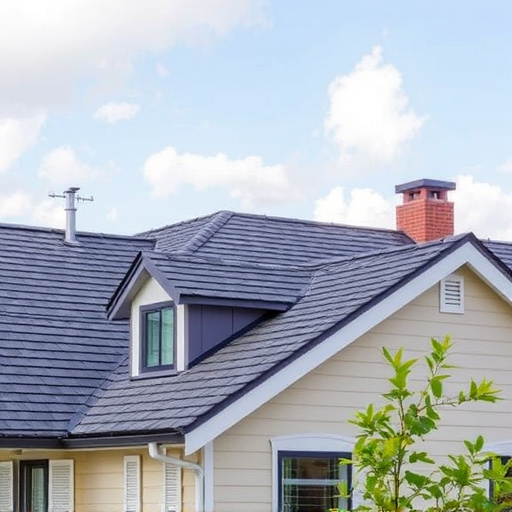
The shift towards sustainable and eco-conscious building practices has led to a significant focus on energy-efficient roofing solutions, which play a crucial role in reducing a structure’s environmental footprint. Green roofing options, such as those utilizing environmentally friendly re-roofing materials, offer not just aesthetic benefits but also contribute to long-term cost savings. By integrating natural elements into roofing systems, these innovative designs enhance insulation, mitigate the urban heat island effect, and improve overall building efficiency.
One of the key advantages lies in their ability to provide excellent thermal resistance, thereby decreasing the need for excessive heating or cooling. This not only reduces energy consumption but also minimizes greenhouse gas emissions, making them a preferred choice for those seeking sustainable and cost-effective re-roofing alternatives. With an array of eco-friendly roof alternatives available, homeowners and builders can now make informed decisions that benefit both the environment and their wallets.
Maintenance and Durability Considerations
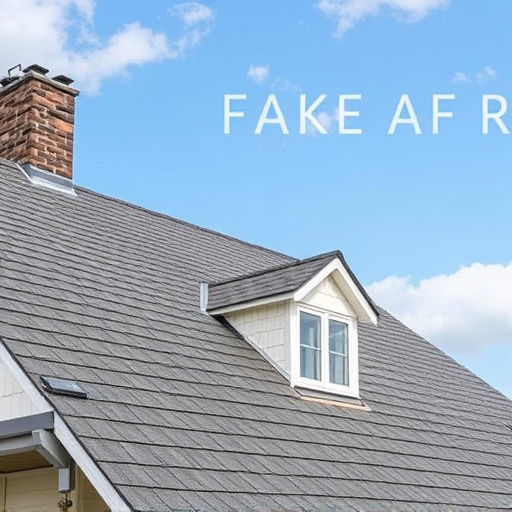
When it comes to long-lasting energy-efficient shingles, proper maintenance and durability considerations are paramount. Unlike traditional shingles that may require frequent replacement due to wear and tear, modern energy-efficient roofing options are designed for extended lifespans, often backed by robust warranties. These shingles incorporate advanced materials and technologies, such as reflective membrane roofing systems, which not only enhance their structural integrity but also provide excellent protection against environmental factors.
Regular upkeep is still crucial, even with eco-friendly roofing options for homes. Simple steps like clearing debris from gutters and keeping the roof free from vegetation growth can significantly prolong the shingles’ lifespan. Moreover, understanding the specific care requirements of your energy-efficient roofing system will ensure its longevity. For instance, reflective roofs offer added benefits by reducing the cooling effects of the sun, thereby lowering energy costs. By combining durability with efficient design, these shingles represent a smart investment that contributes to both sustainability and cost savings over time.
Regional Regulations and Rebates for Eco-Roofs
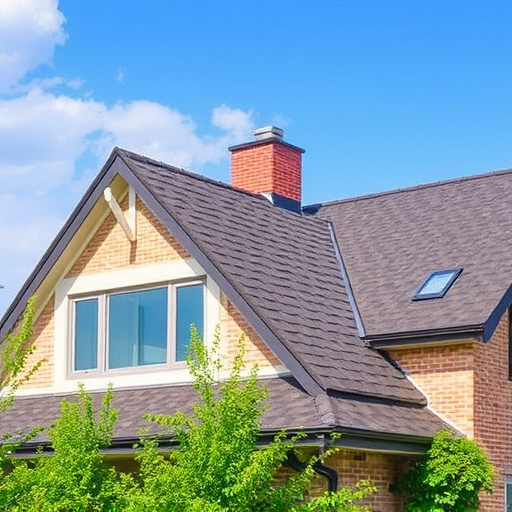
Many regions are now embracing sustainable roofing practices and offering incentives to encourage homeowners to opt for eco-friendly alternatives. These regional regulations and rebates play a significant role in promoting energy-efficient roofing options, such as shingles designed to reduce energy costs through advanced materials and technology. Homeowners can take advantage of these programs when considering an upgrade or re-roofing project, making their homes more environmentally friendly and cost-effective.
The availability of financial incentives varies across different areas, typically in the form of rebates, tax credits, or grants. These rewards are designed to offset the initial investment in energy-efficient roofing materials, like long-lasting, high-performance shingles. By taking advantage of these regional regulations and rebates, homeowners can not only contribute to a greener planet but also enjoy lower utility bills for years to come, thanks to reducing energy consumption through their roof.
Case Studies: Successful Energy-Efficient Roofs
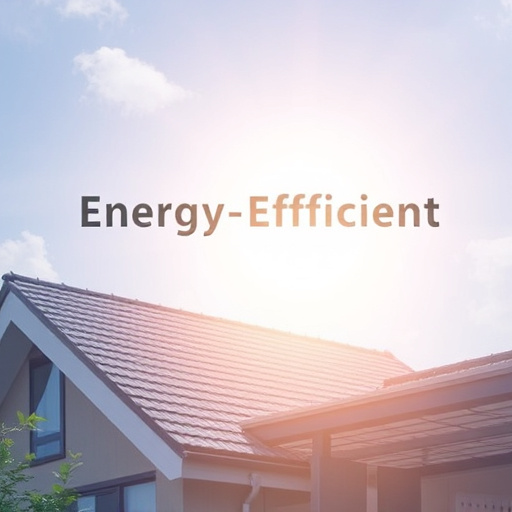
In recent years, numerous case studies have showcased the successful implementation and impact of energy-efficient roofing options. These real-world examples highlight how innovative technologies and materials are revolutionizing the way we approach building design and construction. For instance, a study in a major urban center revealed that installing roofing products with superior thermal efficiency led to significant reductions in heating and cooling costs for commercial buildings. The implementation of long-lasting energy-efficient shingles resulted in an average temperature decrease of 20%, translating into substantial savings and a reduced carbon footprint.
Another notable case involves a residential neighborhood that adopted energy efficient roofing innovations. By replacing traditional shingles with advanced, reflective materials, residents experienced lower indoor temperatures during the summer months, leading to decreased reliance on air conditioning units. This not only provides environmental benefits but also offers economic advantages, as seen in studies showing that these new roofing solutions can pay for themselves within a few years through reduced utility bills.
Future Trends in Sustainable Roofing Materials
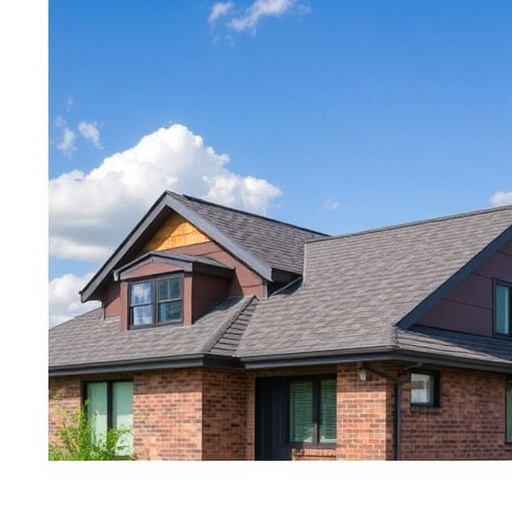
The future of sustainable roofing is bright, with a growing trend towards eco-friendly and energy-efficient materials. One area that’s gaining traction is the development of advanced thermal insulation for flat roofs. By incorporating innovative insulators and reflective membrane roofing systems, architects and builders can significantly reduce energy costs associated with heating and cooling. These cutting-edge solutions not only contribute to environmental sustainability but also offer long-term savings for homeowners and businesses alike.
Additionally, the integration of solar technology into roofing materials is becoming more prevalent. Solar shingles and panels designed to blend seamlessly with traditional roofing options are empowering property owners to generate clean energy on-site. This shift towards integrated renewable energy systems further streamlines sustainable living, making it easier than ever to reduce carbon footprints while keeping homes comfortable and efficiently powered.
Energy-efficient roofing, embodied in long-lasting shingles, represents a significant step towards sustainable and cost-effective building practices. By leveraging advanced technologies and eco-friendly materials, homeowners can reduce energy consumption, minimize environmental impact, and enjoy longer-lasting protection against the elements. The increasing availability of various types of energy-saving shingles, coupled with favorable regional regulations and rebates, makes transitioning to these solutions an attractive prospect for those seeking both ecological stewardship and economic savings. As we look towards the future, continued innovation in sustainable roofing materials promises to further revolutionize the industry, ensuring a greener and more resilient built environment.
